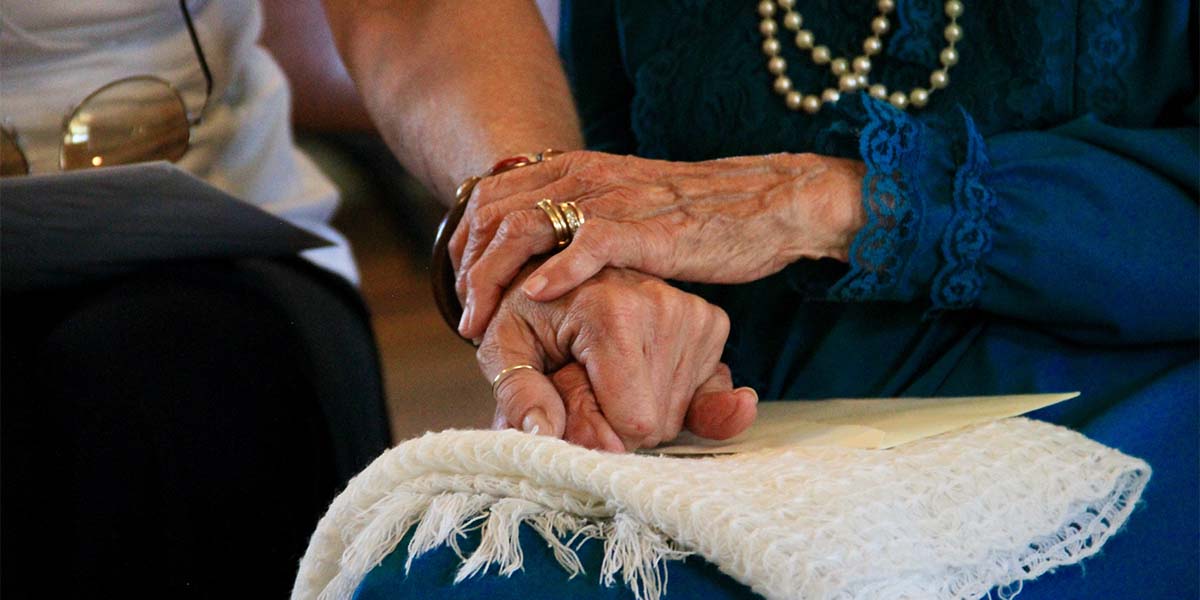
Caregiver Stress & Burnout: Management Tips, Counseling, and Help
What's the best way to find caregivers for a loved one, or support for yourself? It's a decision that most of us will eventually face.
“There are only four kinds of people in the world: those who have been caregivers, those who are currently caregivers, those who will be caregivers, and those who will need caregivers.” Rosalynn Carter
The third Friday in February is National Caregivers Day, established in 2015 to remind us to thank the friends, family members, and professional health care workers who help us preserve our dignity in difficult and demanding ways.
Caregiving for the unexpected
For many couples, dreaming about retirement makes saving during the younger years a bit easier. But that dream can take a turn when one partner develops dementia, and the other steps into the role of full-time caregiver. More than 6.5 million Americans aged 65 and older live with Alzheimer’s, the most common form of dementia, and over 65% of those diagnosed are primarily cared for by a family member.
While an increasing number of Americans rely on home health care, it's a luxury not everyone can afford and a decision not everyone is willing to consider. Often, a spouse takes on caregiving responsibilities out of love, loyalty, and a thousand other reasons. But that commitment can last for years and require physical and emotional demand that we may not imagine when we first take on the role. Today, about 5.7 million Americans serve as primary caregivers for their spouses. And often, they leave little time to care for themselves.
Caring for a loved one can be incredibly fulfilling and often saves money compared to full-time care or inpatient services. But let's be honest, being on call 24/7 can be exhausting and lead to feelings of fatigue, anxiety, and burnout. Caregiving can take a toll on your body, emotions, and wallet. It can also put a strain on your relationships and social life. Many caregivers find it tough to carve out time for themselves, often feeling guilty and turning down offers of help or social invites. Shifting from roles like wife or daughter to full-time caregiver can be tricky, and the new responsibilities might feel overwhelming, especially if they involve skills like financial management or medical care that you've never had to learn.
be honest about burnout
It's absolutely okay to ask for help or even have a good chat about the ups and downs of caring for someone you love. Let's be real, folks who are seriously ill might not always be the easiest to care for. They could be in pain, feeling frustrated, or even a bit demanding as they navigate their reality. If you or someone you know is feeling the weight of caregiver burnout, it's super important to be upfront about the stress you're experiencing.
Your primary care provider can be a great ally, checking in on your mental and physical health, suggesting helpful interventions, and connecting you with resources like support groups, community services, or adult day care centers. Respite care services are also available to give caregivers a much-needed break, whether that's through care at a facility or having home health staff step in for a bit.
Consider asking for help with community resources from your family physician or fill out this form at the National Respite Locator Service at https://arch.gnosishosting.net/Portal/Registry to identify appropriate options in your area.
Trying out mindfulness techniques and making healthy choices in your diet and exercise routine can help ease caregiver anxiety. A study from Stanford University found that elderly Latina and white women, who were primary caregivers for family members with dementia, felt better and more confident in their coping skills, physical health, and stress management after participating in a 6-session yoga and meditation program.
managing caregiver stress
When you're navigating the challenging journey of caregiving, a counselor who understands caregiver issues and stress management can be a beacon of support. They can guide you in finding that delicate balance between your responsibilities and making time for self-care, and help you build the skills needed for the transitions that come when caregiving changes or ends.
Lifeologie Counseling offers both virtual and in-person support groups, creating a safe space where caregivers can connect, share their stories, and learn valuable self-care and stress-reduction techniques.
Reach out to your primary care doctor for recommendations on local resources, or connect with our compassionate therapists near you who are dedicated to supporting individuals and families caring for aging parents. Ever wondered, is there a therapist near me who can really understand all this? YES! Lifeologie Counseling has therapists who specialize in helping caregivers as well as those struggling with issues of aging. Visit our therapists page to search by state, city, or specialty1

About Lifeologie
Lifeologie Counseling was founded in 2000 with one goal in mind — to bring a fresh, innovative approach to the everyday problems of life. Creative solutions to stuck problems®. With our unique multi-specialty, collaborative approach, Lifeologie Counseling helps individuals and families heal their wounds and break out of old, unhealthy patterns.




